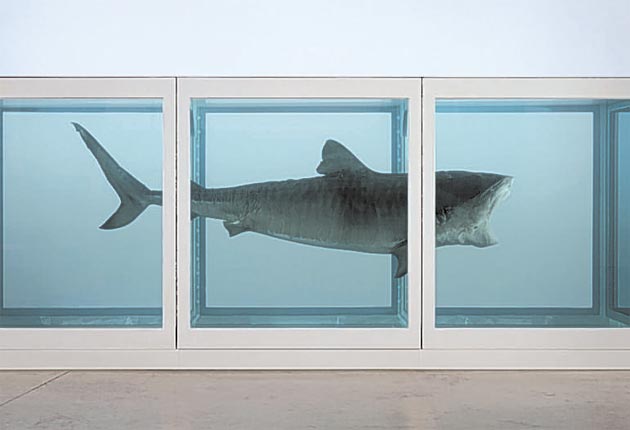David Lister: Why this urge to stage arts events alongside the Olympics?
The Week in Arts

A quiz question: when England won the World Cup in 1966, what were the main cultural shows of the year?
No, I don't know either. Perhaps this one is more pertinent: when Britain staged the Olympics in 1948, what were the blockbusters at the Tate, National Gallery and Royal Academy? Nope, me neither.
History, and, for many, memory, records what happened on the pitch in 1966, and on the running track and in the swimming pool in 1948, but the arts took a back seat. Somehow, that has not diminished Geoff Hurst's hat-trick.
Yet now the very thought of an Olympics year in Britain without an eye-catching arts programme attending it is seen as dereliction of national duty. We have the Cultural Olympiad – yet to announce its detailed programme but promising to spend a lot of money on it while arts across the country are suffering cuts. And already individual arts institutions are vying with each other to show they have a 2012 programme which will be the cultural equivalent of a Usain Bolt sprint.
On Thursday the Tate announced a Damien Hirst retrospective for 2012, including his famous shark. The exhibition will run alongside a programme that includes Munch and Picasso. Meanwhile, the Royal Academy has new work from David Hockney, and the National Portrait Gallery a huge Lucian Freud exhibition. In case anyone should think this is just a normal year, and these big names have no connection with a certain sporting event, the director of the Tate, Sir Nicholas Serota, left no one in any doubt. He said of the Hirst show: "We wanted to show a prominent contemporary British artist in 2012 when the world's eyes would be on the UK."
No doubt we will soon hear announcements of Olympic programmes from the National Theatre, RSC, the Lowry, Sage and Baltic arts centres and probably the Cotswold Morris Men.
Why? Why are we skewing artistic programmes, and certainly skewing finance for the arts, towards special Olympic year programmes? Who decided that the arts should be putting on special programmes when the eyes of the world, frankly, are on sporting events? And even if we accept the very debatable proposition that the eyes of the world are also on Britain's arts, hasn't the arts world been telling us that we are in the middle of a golden age? If that is so, then what need for Cultural Olympiads, special exhibition programmes and huge amounts of spending? Just continue with the golden age. It's impressive enough.
Of course everyone wants the arts in Britain to be exhilarating in 2012, just as they are right now in 2011. But I also want them to be exhilarating in 2013. Or will that be the year when our leading arts institutions decide they have used up too much cash during the previous 12 months, and that after Hirst, Hockney, Picasso and Freud there's no need for another blockbuster?
Was the 'Wizard of Oz' short of songs?
The Wizard of Oz musical that opened in the West End on Tuesday has a few new songs written by Andrew Lloyd Webber and Tim Rice to bolster the original score. Lord Lloyd-Webber is the producer of the musical, and it is the first time in years that he and Sir Tim have collaborated. It's good to see them back together, but adding your own songs to a much-loved classic is an odd thing to do, when you think about it. It takes, shall we say, a high degree of self-confidence. Why don't Messrs Lloyd Webber and Rice pen a few more songs and then they'll have their own original musical?
I'm sure their numbers in The Wizard of Oz are excellent, though I rather hope the habit of bolstering originals doesn't catch on. Macbeth is quite a short play, but I wouldn't want to see the producer of the next version add a scene or two of his or her own.
Authenticity goes up in smoke
Anachronism-spotting is a diverting pastime, with the BBC dramatisation of South Riding proving particularly fruitful. The first episode of the series set in the 1930s has a Yorkshire councillor promising "transparency" – that far too modern political pledge. And, in the most recent episode, a shopkeeper asked a customer: "Would you like it gift-wrapped?" I'm none too sure that phrase was common parlance in the 1930s.
I'm also doubtful about a scene in Million Dollar Quartet, the new West End musical about the jam session between Elvis Presley, Carl Perkins, Jerry Lee Lewis and Johnny Cash in 1956. At one point two of the singers go outside to chat over a cigarette. Going outside for a smoke is a relatively recent habit. I don't for a minute believe that in 1956 the idea would have occurred to anyone.
"Elvis has left the building" goes the famous phrase. But it was never for a cigarette.

Join our commenting forum
Join thought-provoking conversations, follow other Independent readers and see their replies